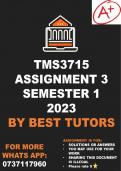, Question 1.1 [15 marks]
When teaching Home Language learners in the Further Education and Training (FET)
phase, four basic language skills are emphasized: listening and speaking, reading and
viewing, writing and presenting, and language conventions and structures. Each skill
focuses on different aspects of language acquisition and communication. Here's a
breakdown of the content knowledge that learners are expected to acquire in each skill:
1. Listening and Speaking:
- Understanding oral instructions and information: Learners should be able to listen
attentively and comprehend spoken language in various contexts, such as lectures,
conversations, and presentations.
- Participating in oral interactions: Learners should develop their speaking skills to
express themselves clearly and fluently in different situations, including formal
presentations, debates, discussions, and informal conversations.
- Effective listening and speaking strategies: Learners should learn techniques for active
listening, note-taking, summarizing, paraphrasing, and asking relevant questions.
2. Reading and Viewing:
- Comprehending different text types: Learners should acquire the ability to understand
and interpret various written texts, including prose, poetry, drama, media articles, and
visual texts like graphs, charts, and images.
- Analyzing and evaluating texts: Learners should develop critical reading skills, such as
identifying main ideas, themes, literary devices, persuasive techniques, and analyzing the
author's purpose and point of view.
- Building vocabulary and understanding figurative language: Learners should expand
their vocabulary, recognize different word meanings, and comprehend figurative language,
such as metaphors, similes, and idiomatic expressions.
3. Writing and Presenting:
- Producing coherent written texts: Learners should learn to write different types of texts,
such as essays, reports, narratives, speeches, and letters, with a clear introduction, body,
and conclusion, utilizing appropriate style, tone, and structure.
- Organizing ideas and arguments: Learners should develop skills in brainstorming,
outlining, and organizing their thoughts effectively, and learn to develop logical arguments
and provide supporting evidence.
- Editing and revising: Learners should acquire knowledge of grammar, punctuation,
spelling, and sentence structure to produce polished written work, and understand the
importance of proofreading and revising for clarity and coherence.




